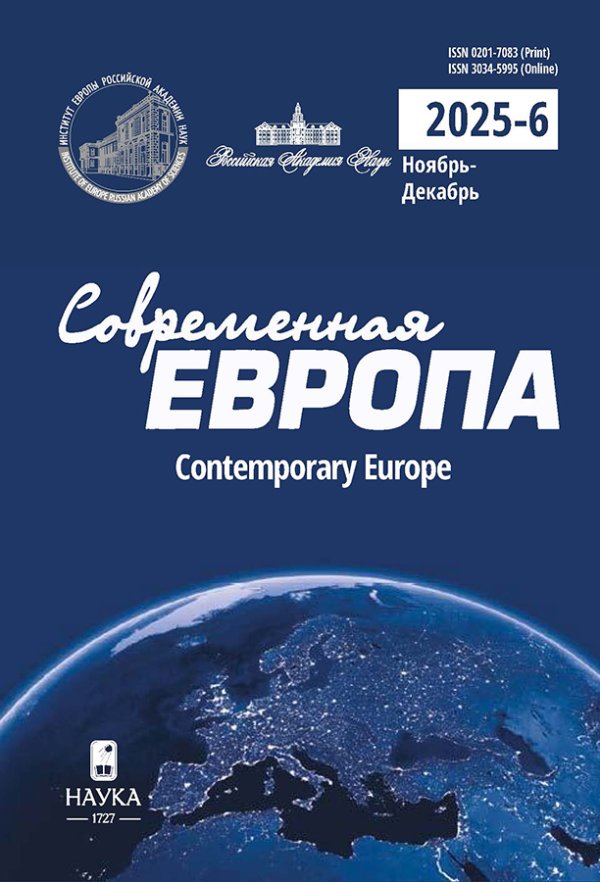No 6 (120) (2023)
Articles
Freezing of russia's arctic chairmanship
Abstract
 5-15
5-15


Habit, Arguing and Emotions in Russia-EU Relations pre-2022: Concepts of Social Actions
Abstract
The article draws on International Relations theorizing of different logics of social action to provide yet another conceptual interpretation of the dynamics of EU-Russia relations before the deepest crisis started in 2022. The research concentrates on the logics of habit, arguing and affective action. Logics precluding changes in EU-Russia relations are illustrated by foreign policy moves and perceptions of both sides pre-2022 crisis. According to the logic of arguing, Russia refuted the EU’s claim to have the better argument, while the EU did not accept Russia’s self-attributed status of a country belonging to the Western lifeworld with shared political culture and did not take Russian arguments as genuine. Consequently, in the logic of affective action, Russian authorities got frustrated and angry because of the EU’s denial of an important Russian affectual need for belonging. The habits of mutual distrust and the incompatibility of mutual perceptions lead to the routinization of the conflict that is very difficult if not impossible to overcome.
 16-25
16-25


Belarus as an object of Poland's foreign policy
Abstract
 26-37
26-37


Priorities of Poland’s policy towards Ukraine
Abstract
 38-48
38-48


The norway's policy in the context of the Russia's special military operation in Ukraine
Abstract
 49-58
49-58


The Balkan vector of Italy's current foreign policy
Abstract
 59-70
59-70


Depopulation of the Balkans: how the EU periphery is hollowing out
Abstract
 71-80
71-80


Too Little, Too Late: the Catalan Debacle in Light of the Slovenian Attainment of Independence
Abstract
The failed Catalan sovereignty process, launched in 2012 and then crushed by the intervention of the Spanish central government in 2017, relied to a certain extent on a discursive framework based on the evocation of previous secessionist experiences in Europe. Among these, the case of Slovenia (successfully completed in 1992) stood out. A close examination of these cases outlines the limitations of these analogies, notably through their differences in terms of political and social articulation and, in particular, the diverging success of external engagement. Beyond political and social articulation and the degree of economic development (heterogeneous aspects in many successful statehood processes), the comparison of these cases demonstrates that a sound internationalization strategy is essential for statehood attainment. The success of such a strategy does not solely depend on the secessionist actors’ ability to reach out to the relevant international players, but also on the latter’s readiness to provide necessary support. While the Slovenes managed to promptly engage with the rapid geopolitical changes in the immediate aftermath of the Cold War, the Catalan bid for secession found receptiveness only among marginal actors within major powers, all together unwilling to push for border changes of a state located in a sensitive area of the Euro-Atlantic security complex.
 81-95
81-95


Soft power in Turkey's foreign policy in Europe
Abstract
 96-109
96-109


European Union transregional cooperation with Latin America: perspectives, opportunities, constraints
Abstract
 110-125
110-125


Factors of foreign trade resilience on the example of the North Europe countries. Ability to recover
Abstract
 126-141
126-141


Analysis of the regional integration theory on the example of the EAEU
Abstract
 142-153
142-153


Trade unions in Germany: challenges and solutions
Abstract
 154-166
154-166


Western churches and politics: frontiers of ideologic divergence
Abstract
 167-179
167-179


Islam in Yamal: features of integration in the Arctic zone
Abstract
 180-192
180-192


Finnish-Estonian defence cooperation. Lessons of 1939-1940 for the USSR and their modern interpretation
Abstract
 193-203
193-203


Europe in the crisis world: pressing issues, unobvious solutions
Abstract
 204-216
204-216


China's investment in EU member-states’ seaports
Abstract
 217-225
217-225












